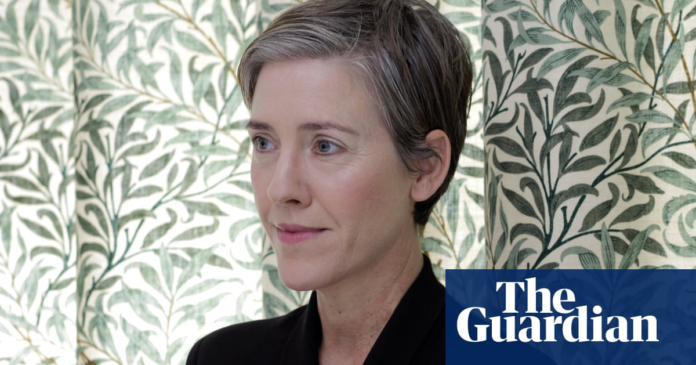Please bookmark for future updates
There is exquisite detail and piercing clarity in these observations from a writer’s notebooks as she faces terminal cancer
And the Walls Became the World All Around, its title taken from a line in Maurice Sendak’s Where the Wild Things Are, is gashed, keening, forensic. It has been finessed from 13 notebooks kept by the Swedish poet and artist Johanna Ekström who, just a week before she died of cancer in spring 2022, asked her friend Sigrid Rausing to transcribe them with a view to publication. Such an unusual – perhaps even onerous – request. Then again, Ekström’s parents were writers and literary grandees; Rausing is the publisher and former editor of Granta: no life without books.
And the Walls … is less about cancer than it is about winter. Early sections take place during the slowdown and muteness of the pandemic. Ekström’s mother Margareta is mute – unable to speak, or even read or write, after suffering a huge stroke in the mid-1990s. “N”, a translator with whom Ekström falls in love, sinks into depression and becomes unreachable. In September 2021 she learns she has ocular melanoma, but a mood of foreclosure and expiry already hangs over every page. “What am I to him now?” she wonders about N. “A dark house. All the lights turned off.” Elsewhere she admits, “I feel like a ship with engine failure.”
Ekström’s ability to dream – and to recall those dreams – is undimmed. They are by turns odd (she is invited by Italian secret police to entrap drug dealers), discomforting (she gets bitten by a lamb; she falls into water), ambiguously autobiographical (she sees a school wall daubed by pupils denouncing their parents for not looking after them). Some are boring. Some – in the precision with which they’re described – barely distinguishable as dreams. A tale of crawling through pipes and corridors “in the space between the skull and the brain” reads like a premonition.
Most vivid, most exquisitely painful, are those fragments addressing her derailment and loneliness in the wake of N’s exit. She imagines that she is Orpheus and that he is in the underworld: “If I look at him, he will disappear. Is that the image of togetherness in a depression?” She recounts Rausing asking her, “You do know how little he gives you?” Her response? “I know, I am content with the crumbs. I eat the crumbs.”
In a writer less sculptural, less tonally meticulous, such sentences would seem abject. Ekström is no emotional exhibitionist – far from it – but she has an unusual ability to hold up her brittle life, to examine its hairlines, almost to honour the ache she feels. The act of writing – almost always in pencil – is something she experiences physically; her words “fill the flat: a small lung, breathing. A minor circulatory system, blood pulsing, hissing, whispering.” Equally, physical objects are rendered vocally: one morning she sees a cup of coffee on her windowsill, so hot it seems to smoke rather than steam, its smoke as erotic as a French arthouse film – “Back turned, it says, ‘You know I’ve always had a weakness for your mouth.’”
Sign up to The Guide
Get our weekly pop culture email, free in your inbox every Friday
after newsletter promotion
Ekström’s notebooks included poetry, photographs, conversations with her psychoanalyst. Memories of faces never to be touched again, places never to be revisited. An attention to light, trees, skies. Some sentences – “Today the coffee tastes metallic, my body is an old waffle, my skin someone else’s” (written before her diagnosis) – have a piercing clarity. Others allude to struggles she has documented in previous books (none of them currently translated into English): “My terror of betrayal. My survival strategy to avoid it: stand right in it and call it something else. An anorexic strategy.”
What an intense, delicate undertaking for Rausing. Ekström, she says, is “in me: a sensation somewhere between my heart and my throat”. She selects and glosses entries; tries to decode the dreams (are they, she wonders, signals, “a faint Morse code picked up by the unconscious?”); charts her friend’s resolve and vitality in the face of her death sentence. It’s a book that brings into relief the art at the core of all editing – its attentive ear, its rigour and generosity, its mysterious intimacy.
And the Walls Became the World All Around by Johanna Ekström and Sigrid Rausing is published by Granta (£16.99). To support the Guardian and Observer, order your copy at guardianbookshop.com. Delivery charges may apply.
Create an account
Welcome! Register for an account
A password will be e-mailed to you.
Password recovery
Recover your password
A password will be e-mailed to you.
Friday, December 27, 2024

